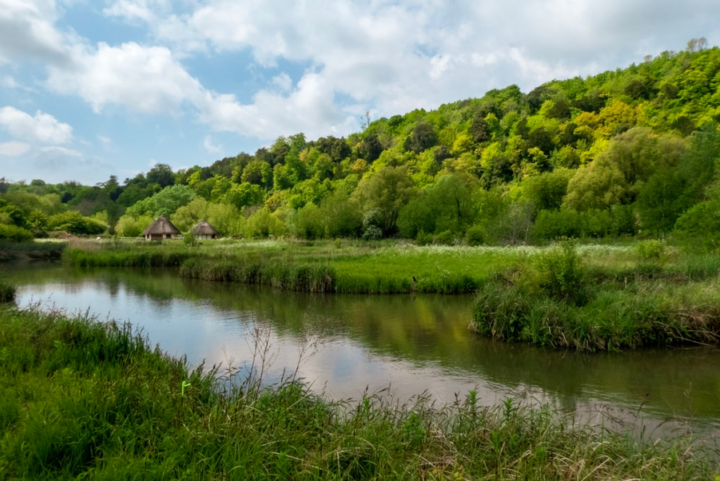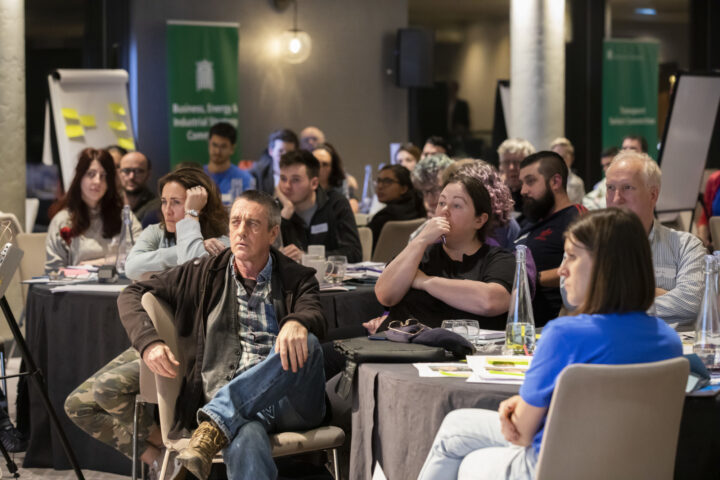Natural climate solutions: why should the UK champion them ahead of COP26?
Lucy Almond explains why natural climate solutions are critical to helping the world achieve the net zero goal.
By Kathy Grenville
Share
Last updated:

If it was an advertisement, it would be hard to believe: 99% of all respondents voted for forests as a means of greenhouse gas removals within the UK. But that was indeed one of the key findings that came out of the UK’s Climate Assembly, the results of which were announced on 10th September.
This mirrors a survey conducted in the U.S. over the summer by the Pew Research Center that found 90% of Americans support tree planting as a climate solution. Elsewhere too, there seems to be extremely high public support for natural climate solutions.
This begs an important question. Despite the popularity of natural solutions to climate change, why do they still struggle to make their way into the centre of the discussion among policy makers about how to tackle global warming?
First, a little background. How we use the land is at the heart of a set of strategies for carbon removal called ‘natural climate solutions (NCS)’. There is no way we can limit warming to 1.5 degrees (or 2 degrees for that matter) without natural climate solutions; we need both the energy transition and all of nature’s carbon storing might if we stand a chance of meeting the Paris Agreement targets.

NCS are proven strategies for both reducing emissions from the land sector and enhancing the ability of natural ecosystems to remove carbon from the atmosphere.
In short, it’s about protecting and restoring forests, wetlands and grasslands – and how to better manage land use for agriculture and forestry. Science estimates that NCS can deliver around a third of climate solution needed by 2030, but still only receive less than 10% of all public finance.
The momentum around natural climate solutions is definitely growing. For example, at the UN Climate Summit in 2019, more than 200 organisations – including governments, corporations and civil society groups – signed onto the NBS Manifesto which captured the spirit of a full range of efforts aimed at scaling up policy action, investment and practical examples of nature-based solutions in action.
The interest in nature as a solution to the many facets of the planetary emergency we currently face has only been heightened by what we’re witnessing around the world this year. Although more research is still needed, particularly at the national level, there is already a wealth of evidence that makes the case for why nature should be at the heart of job creation and long term economic planning all over the world.
For example, a recent report by the World Economic Forum found that focusing on a nature-positive recovery could boost the global economy by $10 trillion (£7.9 trillion) a year and create 395 million jobs by 2030.
But despite this momentum for NCS, and the popular support behind them, they are still often seen at best as an “add-on,” or a “nice to have,” and at worst “a distraction,” rather than a central aspect of decision making about how to respond to the multiple challenges facing humanity.
Part of the problem is no doubt that many still choose to focus on the uncertainties surrounding NCS. On the one hand, there are those who question the science behind NCS. And on the other, there are those who fear they will distract attention or draw effort away from the urgent need to decarbonise the economy.

Indeed, the Citizens Assembly’s report notes that peoples’ support for natural solutions was clear despite the fact that “uncertainties” around NCS were stressed by the experts.
The fact is that our scientific understanding of nature’s role in the fight against climate change has deepened in the past three years and is now well-established. And there is a lot of work going into what “good” NCS efforts look like, versus what “bad” NCS efforts look like.
There are also few in the NCS community who aren’t quick to mention that NCS are an essential complement to, not a replacement for, decarbonisation. It’s time for us to emerge from our silos and start to look harder at, and talk more about, the big picture of how all these pieces fits together.
It’s important that decision makers in our own country, at the international climate summit - COP26 - next year in Glasgow, and elsewhere, listen to the Citizen Assembly’s recommendation that natural solutions are critical to helping the UK, and the world, achieve the net zero goal, and also for protecting biodiversity and wildlife. The government’s 40 million green fund is a valuable step to support immediate conservation needs. However, there is still some way to go to unlock the full potential of NCS. Let’s leverage peoples’ goodwill and positivity to bring NCS to the heart of decision making.
Share